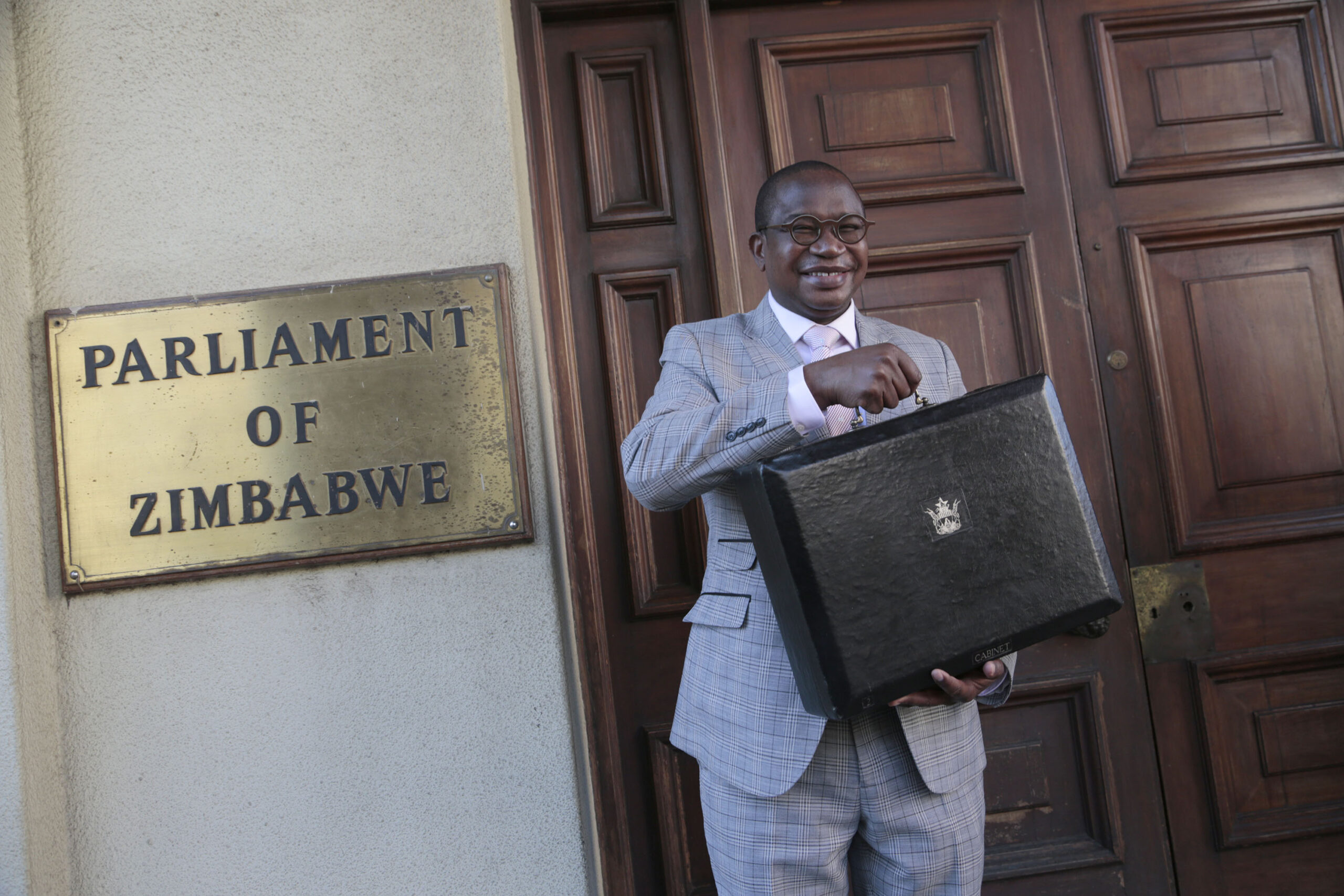FINANCE minister Mthuli Ncube on Thursday announced a ZW$58 trillion national budget to be funded by belt-tightening measures ranging from new taxes on fizzy drinks, raising toll fees, hiking surcharge on flashy cars to levying Zimbabweans with the financial wherewithal.
BERNARD MPOFU
Operating with limited budgetary support, Treasury has since the early 2000s been defaulting on arrears payments to multilateral lenders, and is now heavily relying on mainly domestic resources to finance its capital projects as well as social spending.
After defaulting on arrears owed to international financial institutions, Zimbabweans are now paying the price of the country’s pariah status — international isolation — and low credit rating as they are increasingly overburdened with extortionate taxes since the government is unable to get international funding and lines of credit, especially for capital expenditures on infrastructure.
Zimbabwe’s isolation can be largely traced to the government’s fallout with Western countries over policy differences, human rights abuses and a series of stolen elections.
This led to targeted sanctions which, put together with the government’s failure to pay its debts and arrears, dried up external funding needed for boosting liquidity and funding development projects.
Without meaningful access to international finance, lines of credit and foreign direct investment, Zimbabwe became a struggling economic dystopia.
The country, whose exports are driven by mineral shipments, accounting for over 60% of export proceeds, has been reeling from weakening commodity prices on the international market.
According to a study by the African Development Bank a few years ago, Zimbabwe requires nearly US$20 billion for its infrastructure. Major highways are in bad shape, public health facilities under-stocked, living standards are deteriorating and schools are under-resourced.
In a desperate move to mend the country’s dilapidated road network, Ncube proposed an increase in tollgate fees from the current US$2 for light vehicles to US$5 on so-called “premium roads” like Harare-Beitbridge.
On “other roads”, the fee will double from US$2 to US$4.
While Ncube raised the tax-free threshold for salaries in local currency, civil servants also received a bittersweet message from the budget. The US$300 Covid allowance introduced to cushion the public service during the pandemic is now part of their pensionable salary, starting in January, meaning fewer greenbacks in their pockets.
Ncube also introduced a new tax for multinational corporations which he called the Domestic Minimum Top-Up Tax (DMTT).
The Finance minister says global rules now demand that large multinational enterprises pay a minimum Corporate Income Tax rate of 15%.
He says generous tax incentives are allowing these companies to pay less than this. He is proposing a new tax, the DMTT, which allows the country hosting the multinational to collect “top up tax” rather than the tax going to the headquarters of the company.
The corporate tax has been raised back up to its original level of 25%, after it was cut to 24% in 2020 to help businesses through Covid.
“Granting of generous tax incentives result in an effective tax rate of less than 15% for some multinationals,” Ncube said.
“Under the Global Tax Rules, where a tax incentive results in an effective rate of less than 15%, the tax jurisdiction where the multinational is headquartered collects the difference between the effective tax under the tax incentive and the minimum effective rate of 15% (The Top-Up Tax).”
The Finance minister also proposed to raised surcharge on high-value vehicles.
Turning the mining sector Treasury also proposed to introduce a 1% levy on gross proceeds of lithium, black granite and other cut or uncut dimensional stones and quarry stones to ensure that they plough back into communities they operate from.
This is what Ncube had to say on tax on fizzy drinks: “In response to the growing concerns on the adverse effects of consumption of sugar, in particular, contained in beverages, tax on beverages has been implemented in a number of countries, including in the Sadc region.”
“The consumption of high sugar content beverages is linked to increased risk of non-communicable diseases.
“It is, thus, necessary to discourage consumption of high sugar content beverages, hence, I propose to introduce a levy of US$0.02 per gram of sugar contained in beverages, excluding water, with effect from 1 January 2024.
“Funds derived from this levy will be ring-fenced for therapy and procurement of cancer equipment for diagnosis.”
For those owning houses valued at US$100 000 or more, the Finance minister will be sending the taxman to demand a new “wealth tax”.
“Mr Speaker Sir, the key fundamental of tax policy is to address the regressivity of tax that occurs when individuals in a low-income category pay a higher percentage of their income as compared to individuals in higher income brackets,” the Finance minister said.
“Consequently, the tax incidences fall disproportionately on the low-income groups resulting in inequality.
“In order to ensure that every person contributes to the Fiscus in line with their levels of income, I propose to introduce a Wealth Tax levied at a rate of 1% of market values of residential properties with a minimum value of US$100 000.”
Ahead of the budget, the country’s business organisations such as the Chamber of Mines of Zimbabwe and the Zimbabwe National Chamber of Commerce had lobbied the government to review the tax regime to lower business costs and improve profitability.
With few funding options, Zimbabwe’s desperate government has few options to push the envelope.

